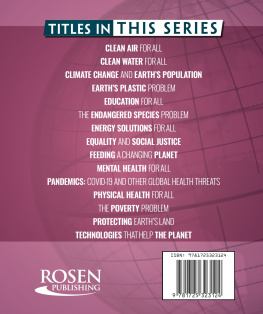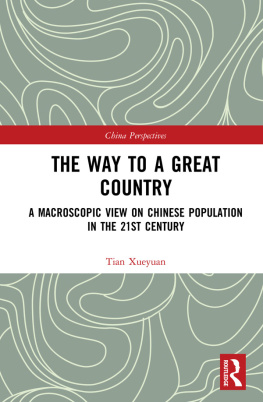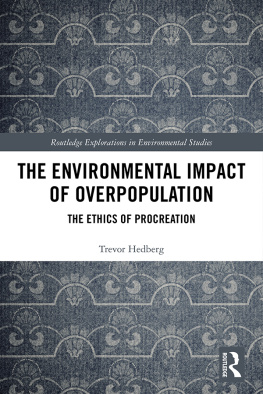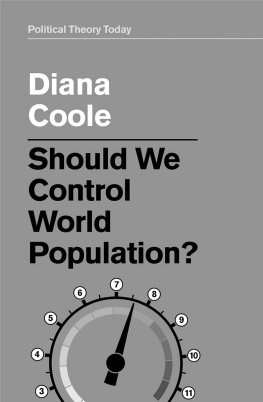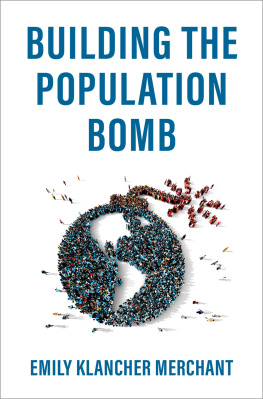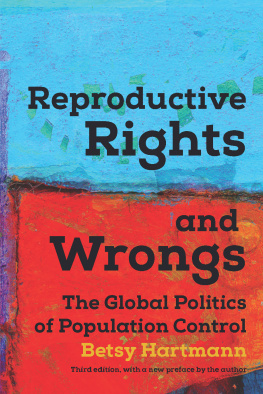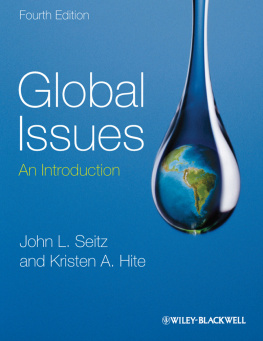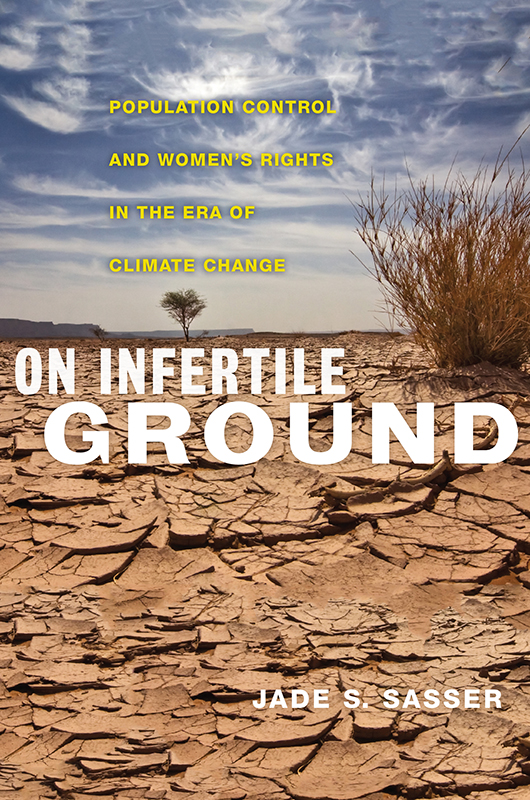
On Infertile Ground
On Infertile Ground
Population Control and Womens Rights in the Era of Climate Change
Jade S. Sasser

NEW YORK UNIVERSITY PRESS
New York
NEW YORK UNIVERSITY PRESS
New York
www.nyupress.org
2018 by New York University
All rights reserved
References to Internet websites (URLs) were accurate at the time of writing. Neither the author nor New York University Press is responsible for URLs that may have expired or changed since the manuscript was prepared.
Library of Congress Cataloging-in-Publication Data
Names: Sasser, Jade S., author.
Title: On infertile ground : population control and womens rights in the era of climate change / Jade Sasser.
Description: New YorK : New York University Press, [2018] | Includes bibliographical references and index.
Identifiers: LCCN | ISBN 9781479873432 (cl : alk. paper) | ISBN 9781479899357 (pb : alk. paper)
Subjects: LCSH: Birth controlEnvironmental aspects. | PopulationEnvironmental aspects. | Climatic changesSocial aspects. | Womens rights. | Feminism.
Classification: LCC HQ766 .S373 2018 | DDC 363.9/6dc23
LC record available at https://lccn.loc.gov/2018012202
New York University Press books are printed on acid-free paper, and their binding materials are chosen for strength and durability. We strive to use environmentally responsible suppliers and materials to the greatest extent possible in publishing our books.
Manufactured in the United States of America
10 9 8 7 6 5 4 3 2 1
Also available as an ebook
For my parents
Contents
Women as Sexual Stewards
One fine day in the spring of 2009, I found myself in a Berkeley, California art gallery for a Sierra Clubsponsored wine and cheese reception. The event was called Sex and Sustainability, and it featured presentations by Sierra Club staffers, activist partners, and a local professor, all focused on global population growth, family planning, and the environment. At the time, the global population was well over 6 billion people (we would hit the 7 billion mark two years later), and climate change activists and policymakers had long been frustrated with the U.S. reluctance to join the global policy community in aggressively combating climate change. Meanwhile, the pace of climate change was relentless. Floods, melting glaciers, sea level rise, and threats to wildlife claimed newspaper headlines every week. These werent just environmental impacts: reported human death tolls in the tens of thousands from intense storms, heat waves, and droughts found their way onto the evening news, illustrating climate changes deadly threat in frightening ways.
However, the reception was upbeat. Barack Obama had been elected president several months prior, ushering in a new era of hope that the U.S. would both increase funding commitments for international family planning, as well as enact binding climate change legislation. The Sierra Club facilitator gave a speech drawing a seamless line of connection between womens fertility, population growth, and environmentalism: Poor women all over the world are having babies in record numbers, with disastrous impacts on their health, the health of their families, and the environment, she argued. We, the mostly student crowd in the room, had an important part to play in making a difference, by signing up for the Sierra Clubs Global Population Environment Program (GPEP) mailing list and connecting to information on various legislative initiatives. We have to empower women globally, advance access to voluntary family planning, advocate for sexuality and reproductive health education, work to reduce consumption, and support the campaign for international family planning. Oh, and write to Obama!
Her words highlighted the issue that is central to this book, namely the return of global population to prominence in environmental debates, particularly in the context of climate change. Type climate change and birth control or family planning into your Google search bar, and an endless array of articles proclaiming the climate-solving benefits of contraceptives comes back. Curiously, a number of these articles claim that this solution is new, innovative, or so shrouded in taboo that no one is talking about it. However, this could not be further from the truth. Neo-Malthusianspeople who view population growth as the main driver of environmental, social, and economic problemshave been making these arguments for decades, blaming human numbers for everything from deforestation to air pollution, global poverty, civil unrest, international migration, and now climate change. This is a long-enduring narrative that permeates ecological sciences, international development, and everyday conversations about the environment.
What is relatively new is the way womens empowerment is being linked to these debates. Population advocates argue that harnessing American foreign aid to provide poor women around the world with universal, voluntary access to contraceptives empowers them to make decisions about their childbearing in ways that affirm their human rights while benefiting the environment by decreasing human numbers. In this schema, fewer people will consume resources and use polluting technologies, relieving pressure on the earth and its atmosphere, which are already being catastrophically stretched to their limits by destructive human activities. While these advocates reject population control because of its historical associations with coercion and human rights abuses, they do maintain that population growth makes environmental and social problems worse, and that their solutions will be easier to achieve if population growth is stabilized.
The distinction, while subtle, is important. Population advocacy arises historically from the deployment of neo-Malthusianism, an expansion of a set of ideas developed in the late 18th century by British cleric and political economist Thomas Robert Malthus. Malthus postulated a theory of the exponential growth of human populations, comparing it to the more limited growth of food production and arguing that human growth far outpaces the earths capacity to maintain the necessary conditions to sustain human life, leading to inevitable famine and widespread misery. Malthusianism is a political-economic concept couched in the language of biological fundamentalism. Malthus was writing at a time of recent, rapid growth in Britain, primarily among the poor. Debates about state aid to impoverished people were ubiquitous, and Malthus developed his ideas to make a case for why British authorities should remove the state-supported food aid provided to the poor via the British Poor Laws. However, he articulated the problems of population growth and the earths capacity as functions of naturedescribing them as natural law, universal and unchanging.
Twentieth-century neo-Malthusian proponents updated this theory, using it to explain environmental degradation writ large, including everything from toxic air, soil, and water pollution, to deforestation, species extinction, soil erosion, and most recently, climate change. They continue to posit these problems as biologicala natural function and result of human population growth. However, population advocates today reject Malthuss ideas, at least some of them do. One could argue that their position is more closely aligned with what Angus and Butler refer to as populationism. Like neo-Malthusians, populationists attribute social and ecological ills to human numbers; however, they reject coercive population control and demographic targets, and support rights-based solutions, including voluntary access to contraception, access to education, and income-generating opportunities for women and girls worldwide.
Next page

